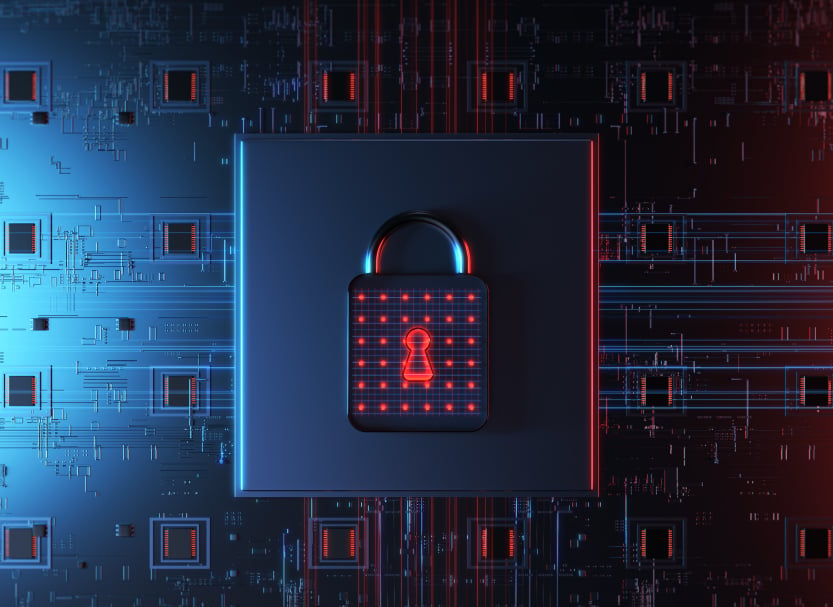
FinCEN Seeks Input on Banks’ Collecting Partial Social Security Numbers for Customer Identification Programs
On March 28, 2024, the Financial Crimes Enforcement Network (FinCEN), in consultation with the U.S. banking agencies and the National Credit Union Administration, issued a request for information (RFI) regarding the customer identification program (CIP) requirement for depository institutions (referred to herein as banks) to collect tax identification numbers (TINs).1 Comments are due by May 28, 2024.

Cybersecurity Takeaways From White House Tech Report
On Feb. 26, the White House’s Office of the National Cyber Director (ONCD), released a report on how technology manufacturers and software developers can improve the cybersecurity posture of the U.S. This report, “Back to the Building Blocks: A Path Toward Secure and Measurable Software,” aligns with the Biden administration’s current, intense focus on combatting ever-increasing cyberthreats through software development and software manufacturer accountability. In this article, published by Law360 on March 26, Sidley lawyers Alan Charles Raul, Stephen McInerney and Vishnu Tirumala discuss the ONCD report and provide key take-aways for software developers and manufacturers, their senior management, and boards.

New Know-Your-Customer and Reporting Rules Proposed for Cloud Providers: Five Key Takeaways
Last week, the U.S. Department of Commerce published a notice of proposed rulemaking (NPRM) implementing Executive Orders (EO) 13984 and 14110 to prevent “foreign malicious cyber actors” from accessing U.S. infrastructure as a service products1 (IaaS Rule). The IaaS Rule seeks to strengthen the U.S. government’s ability to track “foreign malicious cyber actors” who have relied on U.S. IaaS products to steal intellectual property and sensitive data, engage in espionage activities, and threaten national security by attacking critical infrastructure.
President Biden Signs Sweeping Artificial Intelligence Executive Order
On October 30, 2023, President Joe Biden issued an executive order (EO or the Order) on Safe, Secure, and Trustworthy Artificial Intelligence (AI) to advance a coordinated, federal governmentwide approach toward the safe and responsible development of AI. It sets forth a wide range of federal regulatory principles and priorities, directs myriad federal agencies to promulgate standards and technical guidelines, and invokes statutory authority — the Defense Production Act — that has historically been the primary source of presidential authorities to commandeer or regulate private industry to support the national defense. The Order reflects the Biden administration’s desire to make AI more secure and to cement U.S. leadership in global AI policy ahead of other attempts to regulate AI — most notably in the European Union and United Kingdom and to respond to growing competition in AI development from China.
New Export Controls on Advanced Computing and Semiconductor Manufacturing: Five Key Takeaways
On October 25, 2023, the U.S. Department of Commerce Bureau of Industry and Security (BIS) published updated export controls on advanced computing items and semiconductor manufacturing equipment under the Export Administration Regulations (EAR). Specifically, BIS published two interim final rules that revise and expand on the restrictions implemented in the initial interim final rule issued on October 7, 2022 (October 7, 2022 rule).1
Biden Administration Announces National Cybersecurity Strategy
On March 1, 2023, the Biden administration announced its long-awaited National Cybersecurity Strategy. The strategy is part of the administration’s efforts to bolster and modernize public and private responses to cybersecurity threats.

Developments to Improve the Cybersecurity of Federal Government Agencies, Critical Infrastructure
Recently, several developments have been proposed or announced to help identify and mitigate cyber risk for United States critical infrastructure operators and software in an effort to further bolster the cybersecurity posture of the federal government. (more…)
U.S. Treasury Department Seeks Public Comment On Potential Federal Cyber Insurance Program
The U.S. Treasury Department is seeking public comment on the need and scope for a potential federal insurance response to catastrophic cyber incidents, akin to the one put in place for terrorism insurance after the attacks of September 11, 2001.
U.S. FERC Proposes Revisions to Cybersecurity Incentives for Utilities
On September 22, 2022, the Federal Energy Regulatory Commission (FERC) issued a Notice of Proposed Rulemaking (NOPR) regarding Incentives for Advanced Cybersecurity Investment, requesting comment on proposed revisions to regulations implementing the Federal Power Act (FPA). The revisions would provide incentive-based rate treatments for the transmission of electric energy in interstate commerce and the sale of electric energy at wholesale in interstate commerce by utilities for certain voluntary cybersecurity investments. The NOPR was issued in response to a Congressional mandate set forth in the Infrastructure Investment and Jobs Act of 2021, which directed FERC to establish cybersecurity incentives that would encourage investments by utilities in advanced cybersecurity technology and participation in cybersecurity threat information sharing programs. This NOPR replaces a prior cybersecurity incentives NOPR from December 2020.
Blockchain Tracing: The U.S. Government’s Newest Tool to Combat Foreign Crime
On May 13, 2022, U.S. Magistrate Judge Zia M. Faruqui of the District of Columbia took the unusual step of unsealing and issuing a Memorandum Opinion captioned “In Re: Criminal Complaint” to explain the court’s conclusion that probable cause existed to authorize a federal criminal complaint against an individual for transmitting over $10 million worth of bitcoin between the United States and an Office of Foreign Assets Control–sanctioned nation, violating the International Emergency Economic Powers Act (IEEPA) and defrauding the United States, in violation of 18 U.S.C. § 371.

